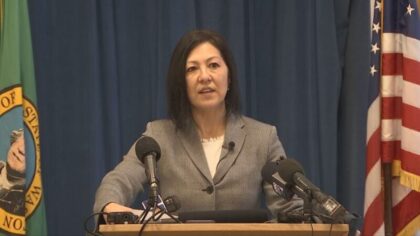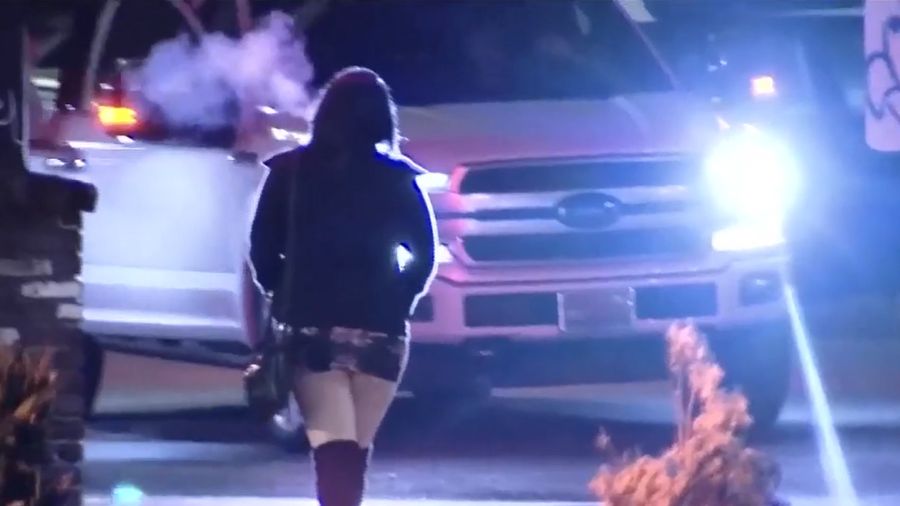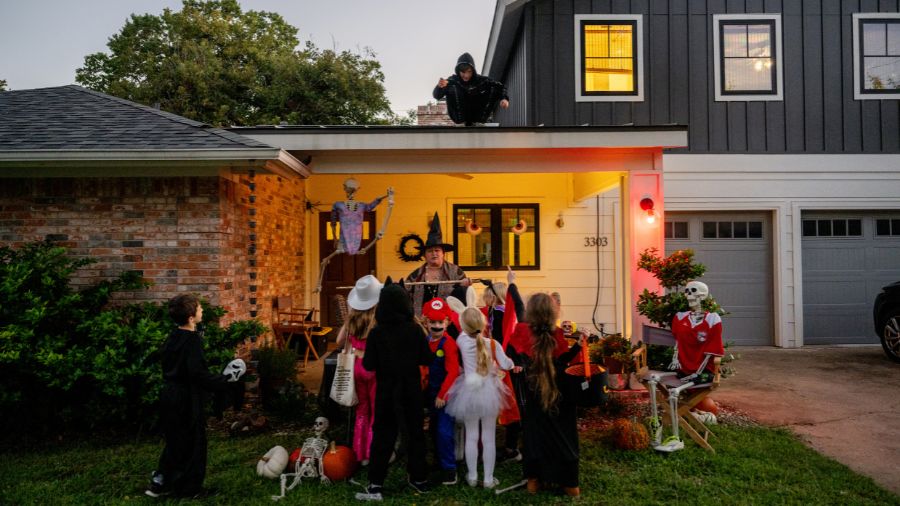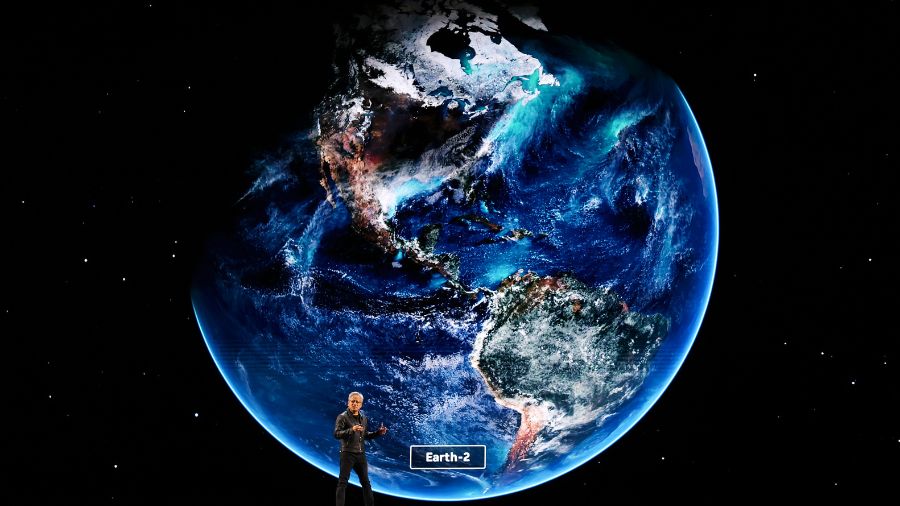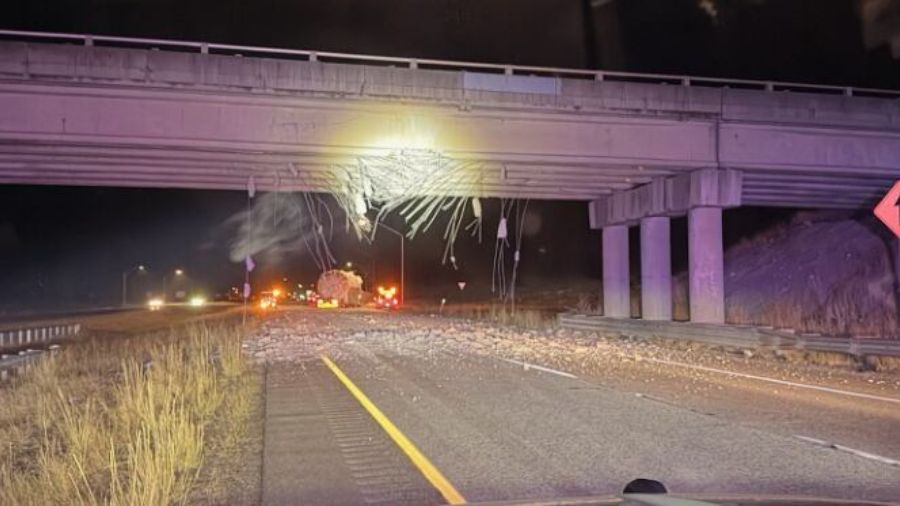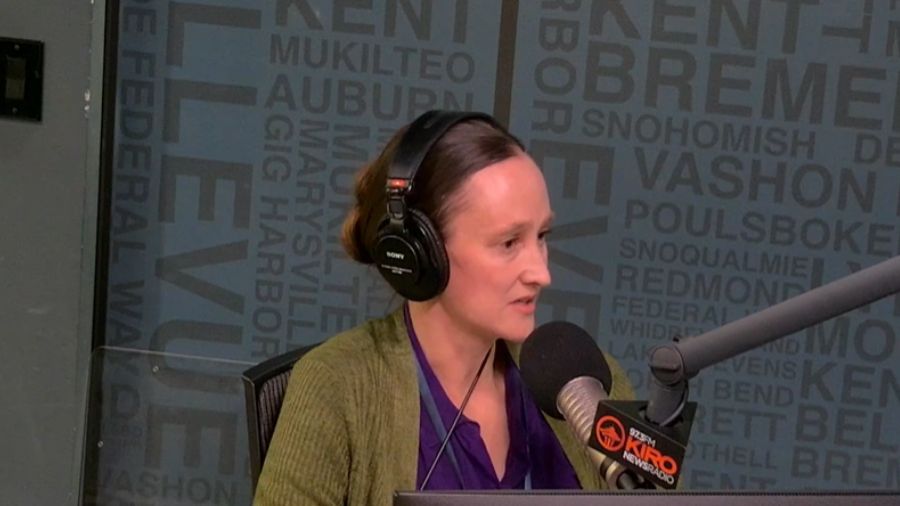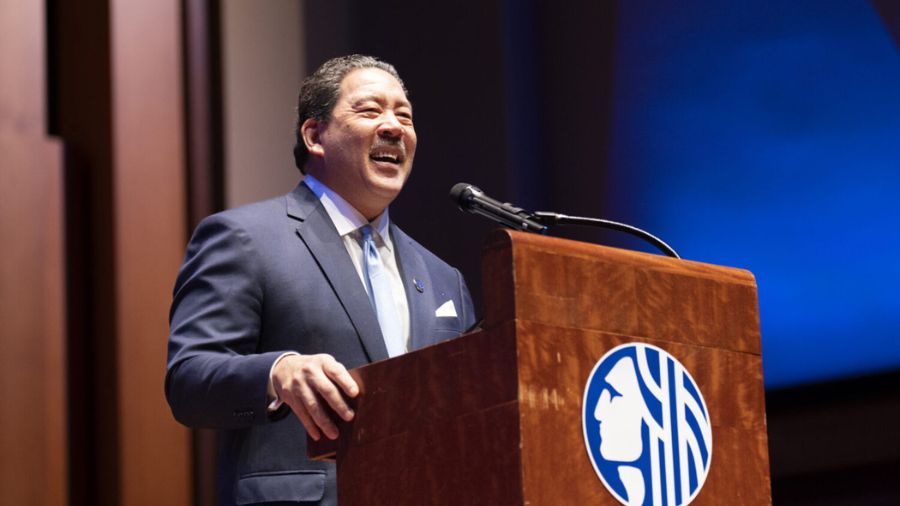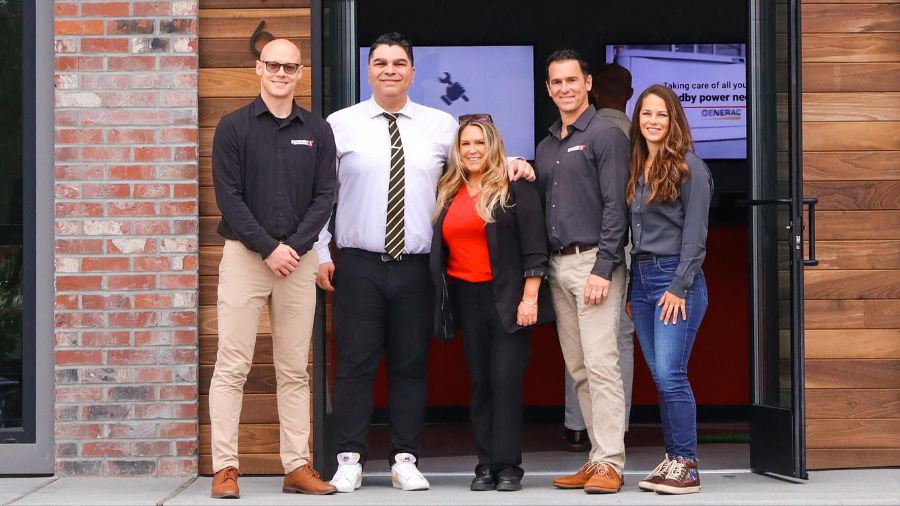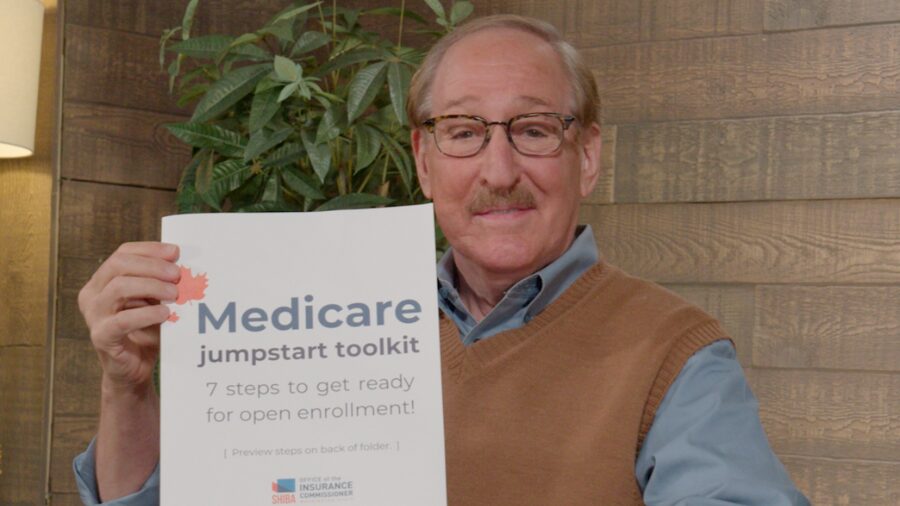Harger: When I heard the capitol was vandalized, my first thought was political. That’s the problem.
Oct 8, 2025, 7:57 AM | Updated: 4:31 pm
I’m embarrassed to admit this, but when I heard someone smashed into our State Capitol Sunday night, my first thought wasn’t “I hope nobody got hurt.” It was “I wonder what side the guy was on.”
That could go either way, politically. Far right-wing rage or extreme left-wing destruction.
Let me be clear. I didn’t need to know which side to know how I felt. It’s all beyond the pale. Violence is violence. Wrong is wrong. But my brain immediately went to politics. To teams. To scorekeeping. That’s sick. That’s what this moment has done to us.
Someone knocked over statues. Burned flags. Torched a priceless rug. And my first instinct was to figure out the political angle.
The lieutenant governor immediately condemned it as part of the “significant escalation in violence-tinged political rhetoric.” Everyone assumed it was political violence. Then the Washington State Patrol released their findings: a mental health crisis. Not political.
But here’s what tells you everything about 2025. We all assumed it was political. Someone attacks a government building, and we don’t think “troubled person needs help.” We think “which side was he on?”
What was your initial reaction to the news?
And I’m a mild case. I watch maybe 45 minutes of cable news a week. I can’t imagine what it’s like for people mainlining Fox News or MSNBC every night. If my brain is this trained to see everything through a political lens, what’s happening to theirs?
Here’s the thing. We’re usually right to assume it’s political because, look around. Political assassinations. Targeted arsons. Church shootings. This year keeps erupting.
The big violence makes headlines. But watch how we treat the small stuff.
When did we decide the rules don’t apply to people we disagree with? A signature gatherer gets shoved. A pride flag gets stolen. Someone’s Tesla gets keyed because Elon. The car with the Black Lives Matter bumper sticker gets flipped off. And what’s the response?
“Oh, well, violence is never the answer. I condemn it completely.”
Then comes the ‘but’
But those initiatives are hateful. But that candidate is dangerous. But they’re destroying democracy. Always a “but” that really means: different rules for different teams.
I’ve covered news for decades. This year feels different. Like we’re unraveling. Each unpleasant or violent act justifying the next. Each side convinced they’re just defending themselves. Leaders say turn down the temperature. How, when everyone thinks they’re the victim? When everyone thinks their violence is justified?
Meanwhile, those of us outside the extremes go to work. Raise our kids. Try to pretend things are normal. But that knot in your stomach? That dread? We all feel it.
Here’s what I keep telling myself. The fact that I’m embarrassed by my first thought means I’m not completely lost. The fact that it bothers me means I can still see what’s wrong with this picture.
The extremes want us to pick a side in their war. To accept that violence is inevitable. To stop being shocked.
No.
This is still our beautiful and flawed country, where we can all get along. The center holds when we hold it. One conversation at a time. One refusal to hate the other side at a time.
Even when our first thought is tribal. Especially then.
Charlie Harger is the host of “Seattle’s Morning News” on KIRO Newsradio. You can read more of his stories and commentaries here. Follow Charlie on X and email him here.

